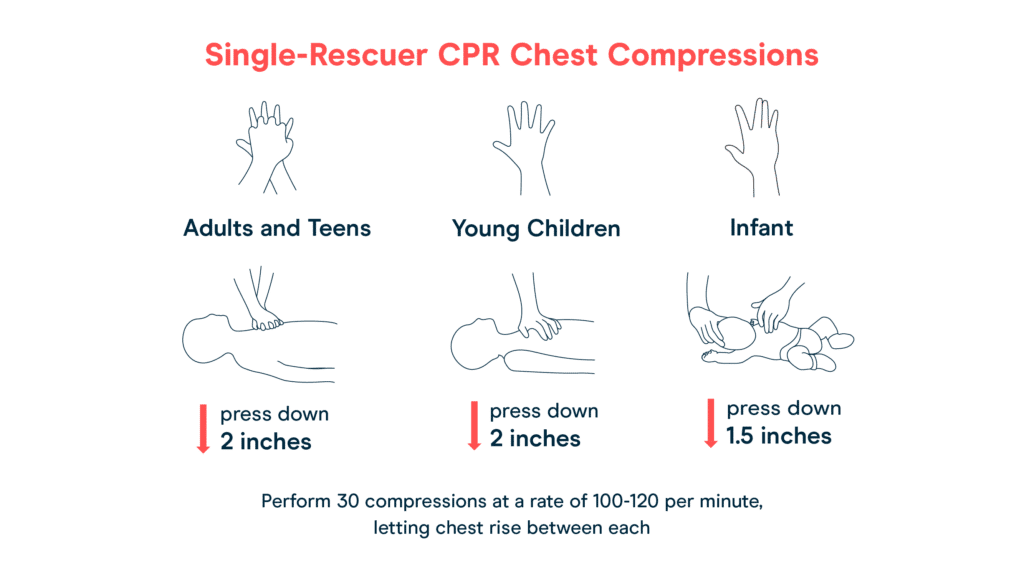
The CPR steps for children and infants are slightly different to the steps for adults.
To perform CPR on an infant or child, use the following preparation steps:
Step 1. Call for Medical help or give 2 minutes of care
First, check the surrounding area for factors that could put you in danger. Next, check the child or infant to see whether they need help. For children, tap their shoulder and shout, “Are you OK?” For infants, flick the sole of their foot to see if they respond.
If you are alone with the child and they are not responding, give them 2 minutes of care
If the child does respond, call immediately for medical assistance to report any life-threatening conditions.
Step 2. Place them on their back and open their airways
Place the child or infant carefully on their back and kneel beside their chest. Tilt their head backward slightly by lifting their chin.
Open their mouth. Check for any obstruction, such as food or vomit. If it is loose, remove it. If it is not loose, do not touch it, as this may push it farther into their airways.
Step 3. Check for breathing
Place your ear next to their mouth and listen for around 10 seconds. If you do not hear breathing, or you only hear occasional gasps, begin to administer CPR.
Changes in an infant’s breathing patterns are normal, as they usually have periodic breathing.
Keep monitoring their breathing and perform CPR if they stop breathing.
CPR steps
Use the following steps to perform CPR on a child or infant:
Step 4. Perform two rescue breaths
If the child or infant is not breathing, perform two rescue breaths with their head tilted backward and their chin raised.
For a child, pinch their nose shut and place your mouth over theirs. Breathe into their mouth twice.
For an infant, place your mouth over their nose and mouth and blow for 1 second to make their chest rise. Then, deliver two rescue breaths.
If they are still unresponsive, begin chest compressions.
Step 5. Perform 30 chest compressions
Kneel beside the child or infant.
For a child, use one of your hands. Place the heel of the hand at their sternum, which is in the center of the chest, between and slightly below their nipples. Press down hard and fast around 2 inches deep, or one-third the depth of the chest, at least 100 times per minute.
For an infant, use two fingers. Place your fingers in the center of their chest, between and slightly below the nipples. Perform 30 quick compressions around 1.5 inches deep.
Step 6. Repeat
Repeat the cycle of rescue breaths and chest compressions until the child starts breathing or help arrives.
